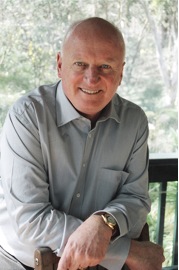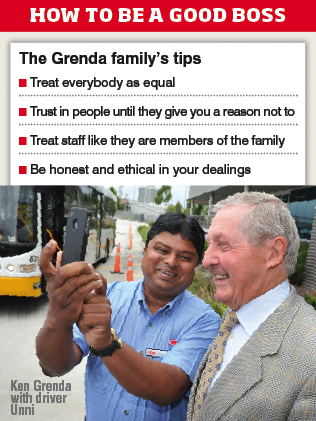Beverly Flaxington: Self talk for a calmer you-Learn how to use positive self talk to control anxiety and live a happier more relaxed life
Let’s be honest about it, we all experience feelings of anxiety from time to time. It may be for a couple of seconds during the day or it may weigh heavily on our minds and souls imprisoning us in an invisible cage that sucks the joy out of our lives. Suffice to say it comes with the territory i.e., it’s a given that as long as we have a pulse, we are not immune to the odd stab of those feelings.
In an ideal world we would recognize what we are feeling and take the proactive steps of surrounding ourselves with supportive friends and have time to exercise, eat well etc. to counterbalance the pesky feelings of anxiety.
However, there are times when we feel that we are drowning under this massive wave of helplessness that undermines all that we consider as positives in our lives.
Beverly Flaxington Interview Part1 1 Oct 2013
Beverly Flaxington Interview Part 2 1 Oct 2013
Overwhelming anxiety can kill careers, relationships and businesses; chronic anxiety is debilitating. But it does not have to be this way as Beverly Flaxington author of “Self talk for a calmer you-Learn how to use positive self talk to control anxiety and live a happier more relaxed life” explains. Beverly states that “Anxiety can take control of your mind and body — if you let it. You have the power to turn negative situations into positive ones with your self”.
Beverly who is an award winning author and Certified Professional Behavioral Analyst (CPBA), hypnotherapist, and career and business adviser discusses strategies to tame that anxiety and has shared her powerful action steps here.
Richard Branson’s Enlightened Corporate Management Style
I attended a Q&A session with Richard Branson as the main attraction at the National Achievers Congress 8-9 May 2013 in Adelaide.
I came away with the conviction that I am on the right track because he confirmed my beliefs about how people tick and therefore how to get the best of people in organizations of any size.
The notes below are a summary of his personal and professional work ethos that I furiously scribbled down; get ready to pump your fist into the air and go Yes! as you read the points that you too agree with.
- Don’t go into business solely with the aim of making money-it probably will not survive the process.
- Go into business because you want to serve people or make a difference in peoples’ lives eg, you have identified a large gap in the market that’s crying out to be filled.
- Think British Airway’s monopoly and cheeky upstart Virgin Atlantic offering prisoners er I mean passengers a choice.
- Have fun creating the product or business. He figured that since most people spend from 8-10 hours at work, it should be a fun place. I was literally jumping for joy when he listed the following initiatives:
- Allow staff to work from home
- Encourage them to take time off
- Be flexible in working arrangements
- Job share
- Create a product or service that your people can believe in and by inference they put their heart and soul into too. Build a brand that is respected, provides great value and quality. It is your job as the MD/leader/CEO to instill that 100% belief of the product/service in your staff.
- Dream big because you never know where this may lead
- In the case of Virgin Galactic it will be commercial space travel; now that’s a first in anyone’s book
- As a bonus it has opened up the potential of this business to launch satellites for other telecommunications companies (can you already hear the cash registers ringing?)
- Listen to your people; they probably have great ideas
- This makes a lot of sense as your staff members are at the coalface, factory floor, frontline service desk…you know what I mean.
- Be big enough to take criticism from them. Acknowledge that you have heard them and then take the appropriate action.
- Keep your word. If you say you’ll get back to them DO so within a reasonable time frame
- Carry a notebook (which he does). Speaking with his many staff in different businesses and locations can cause things to blur. He writes them down rather than depending on his memory recall.
- An interesting aside was his comment that he did not think much of Managing Directors (he called them “weak”) who just flapped their gums. In his own words he wondered about the benefit of attending meetings where nobody took notes. The implication was that these people were not serious about the outcome of said business meeting (and the unsaid is why bother doing business with them).
- Treat people well; praise lavishly (I loved this one!)
- Learn the art of delegation; because he has surrounded himself with good people it has allowed him to spend time on Necker Island connecting with his wife and kids as his trusted people have his back
- Find time to be fit; prior to coming on the Q&A session he had had an hours bike ride around the city of Adelaide. Later it emerged that he received a caution from the local constabulary for riding without a bike helmet but that’s a story for another day.
- Do not be embarrassed by failure, but learn from them. Give it a go, if it floats other people will get on board with your business idea and maybe even become a source of finance
- Do not hide your talents under a “bushel” but share them. He recounted that he was shy as a child and his mother’s words were something to the effect that shyness was a form of selfishness. Go out and contribute to the world was her advice.
- Make friends with people you have fallen out with; in his case it was inviting the Chairman of British Airways to lunch after their protracted and acrimonious court battle.
- And finally, screw it just do it.
Beverly Flaxington: Seven Steps to Hiring and Retaining the Right Person
An organization will only function like a well oiled machine when we have the right people for the right jobs. Sounds logical but the stats don’t lie. According to the Dept of Labor, 50 percent of all employees leave their job within the first six months of being hired. 
And in a recent survey by Right Management 86 percent of employees polled said they plan to actively look for a new position in 2013 (http://www.right.com/news-and-events/press-releases/2012-press-releases/item24318.aspx).
To say that the correct candidate selection process for a specific role is crucial is an understatement. So why does the recruitment process go so wrong sometimes.
Beverly Flaxington a Certified Professional Behavioral Analyst (CPBA), hypnotherapist, and career and business adviser explains in her latest best seller Make Your SHIFT: The Five Most Powerful Moves You Can Make to Get Where YOU Want to Go how to get it right so that it doesn’t end in tears but instead increases the bottom line.
Beverly Flaxington Interview Part1 5Feb2013
Beverly Flaxington Interview Part2 5Feb2013
In this short excerpt Beverly shares a tip on how to deal with a difficult boss!
Find Beverly at http://www.
Wayne McDonald Interview Part1: Success Know How
Wayne McDonald, founder and CEO of Success Know How really does know how to take your business from a standing start (or in some cases in dire need of resuscitation) to a 10 fold increase in profitability-at least.
His 25 years of experience either owning or running corporate training companies places him as an authority in this field of getting your business to the next level.
With a tagline, “Success can be achieved by growing your mind and engaging your heart”, Wayne is not afraid to confront the hard issues that prevent people and companies from performing at their best.
Wayne McDonald Interview Part1
He shares real life examples (Part 2 of this interview) of how he gets business owners past their own fears and vulnerabilities about managing recalcitrant staff to being empowered to make decisions that are in the best interest of their business.
He helps his clients take a quantum leap beyond their present circumstances and limitations to unlimited success.
Find Wayne at
Meet Victoria’s best boss who gave his staff a $15m bonus: This is how you do it Mr CEO
I love when a boss gets it that his most precious assets are his employees. 
Ken Grenda is on such boss. His tips on how to be a great boss should be compulsory reading for any aspiring CEO
A MELBOURNE boss has stunned his staff by giving them a staggering $15 million gift -the ultimate pay-off for their hard work and loyalty.
Workers at bus company Grenda couldn’t believe their good fortune when surprise bonuses averaging $8500 were paid into their accounts – with some staff receiving as much as $30,000.
“A business is only as good as its people, and our people are fantastic,” he said. “This is to recognise that. We have had people here who are second generation, and one fellow in the same job for 52 years.
Grenda bus driver Heath, with the company for just 10 months, received less than the average bonus, but was dumbfounded by his windfall of around $850.
“Some employees were calling their banks assuming it was an error,” he said. “Good bosses are hard to find and Ken was a very good boss, one of a kind.”
By Elissa Doherty Herald Sun February 01, 2012
Three tips for maintaining your equanimity at work
Maintaining your equanimity, composure and internal sense of balance is a skill than anyone can develop.
I call it a secret weapon of the successful who seem to be able to navigate their way through an office environment that is studded with booby traps and minefields cunningly disguised as work colleagues; from the hypochondriac who painstakingly documents and broadcasts their every ache and pain (and bodily functions) to the angst ridden determined to share their life story and every other possible combination in between.
Our external world mirrors what goes on for us at the subconscious level. We attract into our immediate environment people and situations that remind us of what we focus on most within ourselves.
Ask yourself as you are reading this, what has been ticking over in your mind today. Was it a pleasant and happy conversation or encounter with another person, or was it you wishing you had the last word in an argument. Our best comeback lines are usually after the fact, sad but true.
Do you also notice that the same incident plays on high rotation in a loop fashion in your head, much like background muzak in a restaurant? It is just barely noticeable but it is there, insidious isn’t it.
So, the three circuit breaker tips I suggest are:
1) Check in on yourself
By that I mean, pause regularly during your work day and breathe; yes literally notice yourself breathing in and then gently exhaling. This is designed to slow down brain activity for 20 seconds, long enough for you to pay attention to your body instead of rushing headlong to meeting external deadlines.
This 20 seconds can be the difference between having a productive day or having a tense exchange with a co worker.
2) Eat your lunch away from your desk or work station
Being the office burning martyr will not get you a medal; removing yourself physically from your desk even if lunch is 20 minutes allows your brain to recalibrate.
Great for problem solving because it gives you time to mull over the facts (as you chew your food) without consciously thinking about coming up with a solution.
3) Remind yourself of what is important in your life
Keep a motivational quote on a 3 x 5 card by your computer as a reminder that you have a choice about how you are going to feel today; you choose how you wish to respond to your present circumstances.
Just reminding all you good people that I have a website devoted to mindset and financial freedom if you are wondering where some of the interviews have gone. Please head over to
Six Steps to Creating a Profit: Interview with Pat Sigmon
It is not very often that I get to talk to a successful entrepreneur and businesswoman can claim to have been in business for 30 years, and in what can be construed even by today’s standards as a male dominated niche.
Patricia Sigmon graduated with a computing degree and founded LPS Consulting Co whose core business is focused on offering businesses computing hardware and software solutions. 
Pat is the author of “Six Steps to Creating Profit-A guide for Small and Mid Sized Service Based Businesses”. This is a no nonsense content rich book crammed with straight forward advice for any business owner who knows they need to improve their profit margin.
Listen to the interview Pat Sigmon Interview (unlinked)
She shares how a service oriented company can stay fresh and at the forefront of their clients’ mind and warns that ignoring the internet, social media such as Facebook and Twitter means needlessly leaving a lot of money (read profit) on the table.
Pat explains that every employee in your company is in sales, and that includes the receptionist who answers your phone. As she so aptly puts, “It’s all about sales and marketing”.
If you know your business could do with a make over and a boost to your bottom line, why not get her advice. In these challenging economic times, you will do well to have the expert on your side.
Find Pat Sigmon at
www.DavidAdvisoryGroup.com
www.LPSConsulting.com
Robert Jordan Interview: Six Success Tips for Aspiring Billionaires (How They Did It)
If you are like me, you too will wonder about what sets these seemingly ordinary people apart from the rest in terms of their capacity to recognize and identify a need, develop a service or a widget that addresses that need and then go on realize their goal of turning their ideas into millions of dollars.
I asked Robert Jordan who has compiled interviews with 45 billionaire entrepreneurs and published his book telling us how they did it. Below are six indispensable tips that helped them succeed. 
Click here to listen Robert Jordan Interview (unlinked)
Robert Jordan is an entrepreneur and author who has made it his mission to discover the “secret sauce” used by self made billionaires to launch themselves from growing an idea into $100 million dollar companies or if it suits, taking their pride and joy public to the tune of $300 million or more.
Robert’s entrée into their world is paved by his own success when he launched and grew his startup company, Online Access, the first Internet-coverage magazine that made it on the Inc. 500 list of fastest growing companies.
As is quintessential a characteristic of all serial entrepreneurs, he then sold his highly profitable Online Access and proceeded to start up a couple more companies, RedFlash, a project implementation team, and interimCEOinterimCFO, a worldwide network of interim, contract, and project executives.
Robert’s gift for getting consensus saw 21 of the eventual 45 founders agreeing to meet and freely share their insights, occasional pain and billion dollar experiences.
Their collective wisdom has been distilled into his latest book, How they did it: Billion Dollar Insights from the Heart of America. 
He freely admits this book was a labor of love, driven by an insatiable curiosity to know the minds and passions of this select group of diverse individuals.
All aspiring entrepreneurs who believe they are billionaires in the making will do well to heed the advice of the 45 who have gone before them. Here are just six tips to steer you to success:
1. Do not be afraid to fail; if and when you do, make sure you fail fast.
2. Do not be precious about your idea, be willing to tweak it
3. Leave your ego at the door; be astute enough to hire people smarter than you
4. However, make sure they are nice not just smart.
5. Honestly is still the best policy, so be on the level when communicating with the people who work for you because no one becomes a billionaire on their own.
6. Believe in the goodness of your angel investors but have Plans B, C and D just in case they decide to bail
Find Robert Jordan on http://www.HowTheyDidItBook.com
What has leadership got to do with becoming wealthy: Part 2
In Part 1 of this series, I finished with the statement that a good leader demonstrates emotional intelligence in his/her daily dealings with their staff.
A good leader realizes and publicly acknowledges that they cannot achieve their goals on their own, and a good leader learns to place their well-founded trust in their staff.
This folks, is another form of leveraging of your time (as in time equals money) to succeed in whatever business you are in.
So, how do you recruit good staff who share the same values, ie work ethic and general outlook in life. In other words, how do you find the best people who will fit nicely into your business organization.
Well, I am a firm believer in asking questions beyond the standard run of the mill enquiries so beloved of human resource types, during a formal interview process.
Without straying into the “no go” zone about their personal life, and orientation which is none of my business, I want to know what makes them tick, what inspires them to get out of bed in the morning to come and work for me.
This is because I can then get a better sense of the person. To me they are not a number or a drone but real people who have real feelings, fears and aspirations and hopefully a burning ambition and a bit of fire in their belly.
It’s a bit like being on a first date, a lot of this time is spent talking, shooting the breeze and when a person is at ease, they reveal themselves.
All I have to do is shut up and listen and observe. So, a good leader knows when to speak and when to be quiet. I’d hazard the ratio is a 20:80 split. Do you get my drift?
Do yourself a favor and read up on body language; believe me that speaks volumes when it comes to getting an honest response from your interview candidate.
As I previously said, people are not motivated by money as much as feeling that their contribution is worthwhile and publicly acknowledged.
This is the human connection that you are looking for. If you get this right, your people will go the extra mile for you, simply because you have gotten them wholly involved in your vision.
And it all comes down to the “C” word, communication.
For the old school types, communication consists of me (the boss) talking and you (the minion) listening and carrying out my wishes. It does remind me of one of those typical army movies where the drill sergeant yells at the recruit, “Hey, meathead, if I want your opinion, I will give it to you”.
For the rest of us who do not subscribe to this method of communication, stay tuned and I will share with you some worthwhile ideas.
Yours in health, wealth and happiness
What has leadership got to do with becoming wealthy: Part 1
Answer: Everything!
Leadership, or more importantly good leadership underpins your ability to succeed.
As a great leader, you are the inspiration, visionary and literally the soul of your business.
Click here to listen to the full recording Leadership and Wealth Part 1
It applies equally across the spectrum should you be the CEO of a multi national corporation or a solopreneur with a red hot idea.
The most reliable way to creating wealth is to build up a business that turns over significant dollars and selling it as a viable concern, or have a business model that can be replicated many times over, then licensing these as franchises.
The caveat here is that your business must provide exemplary value for a service and/or product that is second to none, and that the consumer is willing to pay top dollar for what you offer.
I use the example of your toothache and your smiling dentist, Dr Fang.
If you had a toothache you’d probably ignore it for as long as it is possible. Show me a person who enjoys sitting in the dentist’s chair with a high speed drill on their teeth and I will show you someone who is flat lining.
However, there will come a time when all the pain killer tablets in your bathroom cabinet will not stop the sharp shooting pain that makes you want to grab a hammer and hit your toes with it because that is the only thing that will take your attention away from your toothache. This usually occurs round about 9 PM on a Sunday evening.
At this stage you will not care if you have to take a second mortgage on your house to have your toothache dealt with.
Dr Fang is more than happy to oblige, fixes your toothache and makes the pain go away (for a fee).
Dr Fang knows that toothaches do not occur between the hours of 9-5 on weekdays only. In fact, he/she has noticed that if their dental surgery was open 24 hours a day 7 days a week, there would not be a shortage of patients in their waiting room.
Because Dr Fang cannot be at more than one place at a time, they hire other dentists and support staff to replicate their service across town or even the country.
Their secret weapon is that they are able to leverage their time. Another equally important component is that they aim for staff members to have the same passion and work ethic.
If you are a heart centered businessperson, not only will you be looking at a bottom line of increased profits or revenue, but as importantly, that increased productivity has not come at the expense of your employees’ well being.
Put yourself in Dr Fang’s shoes and ask yourself, how do I get my staff to share my big picture goals and visions for my business?
Here’s where effective, strong and good leadership becomes vital to a business not only surviving but thriving, GFC or no GFC.
Just reiterating, as a great leader, you are the inspiration, visionary and literally the soul of your business.
Essentially, leadership is firstly knowing yourself (and being wholly comfortable and accepting of who you are).
Secondly having a clear vision of what your (business) goals are.
Thirdly, it is being able to clearly communicate this vision to your staff and getting total buy in from them. They have to do this voluntarily or else it will not work (think Captain Bligh and the mutiny on the HMS Bounty).
This includes building trust, getting your workers to function as a cohesive unit and motivating them to perform at their highest level, and to do so on a consistent basis.
Impossible, you say?
Not if you are an emotionally intelligent leader.
People are not motivated by money as much as feeling that their contribution is worthwhile and publicly acknowledged.
More on this in my next post; until then
Yours in health, wealth and happiness
